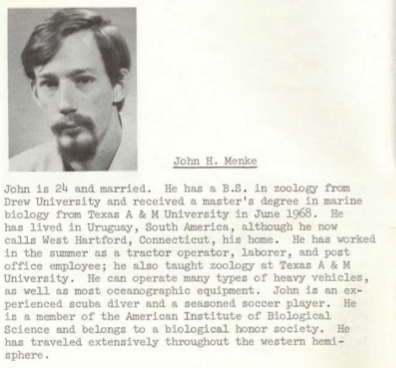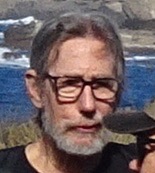1968-

2019-

John Menke worked in Fisheries Programs in Chile, where he gathered data on the behavior of Ostrea chilensis and proposed methods for the culture of oysters in the Chiloe region of Chile. He had saltwater tanks (cement) built to facilitate settlement of spat. The main project was the building of two 250 foot long, six feet high, dykes, with gates, to create a 20 acre intertidal pond, for the culture of the oysters. He continued a career in science after PC service and was a teacher, both high school (independent, college prep schools), and university level, at University of Arizona (adjunct prof), and the National Autonomous University of Honduras (Fulbright scholar). He states: “I now teach marine biology for NOAA, as a volunteer, and twice a year, I teach a UC Davis course at the Coastal Institute (both near where Jan and I live). Given how many factors affect each of our career decisions, I can't say yes or no whether PC affected my life choices, as I might have been heading in that direction even without the PC experience. Chance plays a significant role in the pathways a person takes through life. That is, deterministic forces send us in a general direction, but stochastic forces (chance - something we read, a person with whom we speak, a notice of a job opportunity, etc.) alter that direction. Peace Corps Chile cemented my interest in marine biology, as well as a connection to Latin America. PC service helped me in my career. It gave me experience with life in the oceans, and allowed me to mature more over those two years. It also taught me to pursue a career wherein I had a significant level of autonomy, as I was very stressed by the top down decision making which I experienced in Chile (IFOP). It probably also influenced where I took three decades of extended field trips (Mexico, Belize, Honduras, Panama, Ecuador - Galapagos Is.) for my marine and tropical ecology courses. "